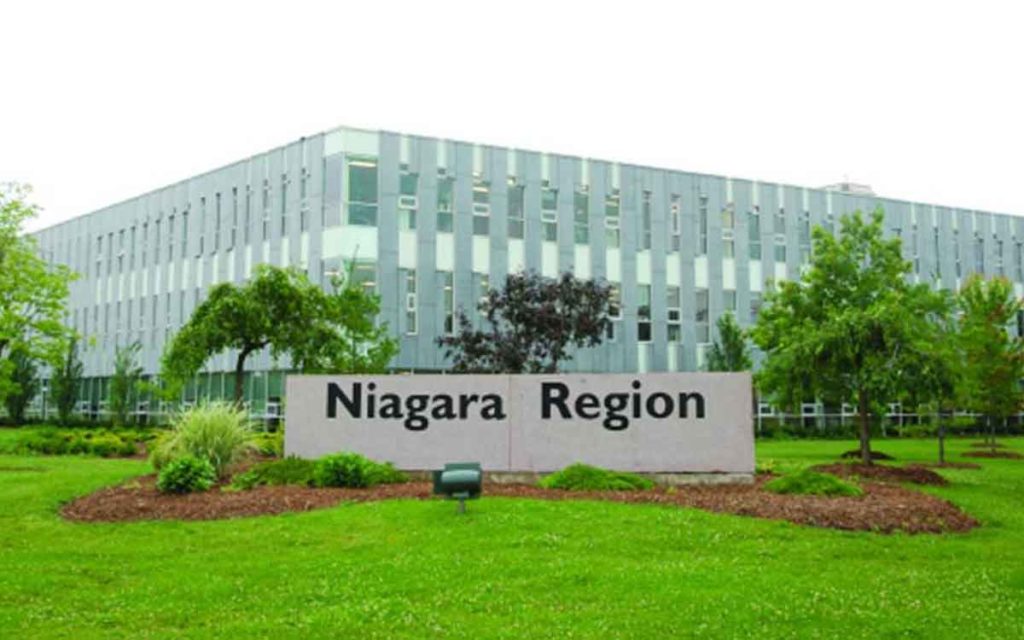
Results from a recent Niagara Independent reader’s survey will be profiled in a series of articles called “Your Say”.
Responding to a recent survey conducted by The Niagara Independent, 96 per cent (499) of Niagara Independent subscribers who took part say the Niagara Region should “re-establish an independent audit team to oversee the Region’s financial activity”.
The question was put to subscribers after a number of contract procurement issues have surfaced at the Niagara Region in 2020 including internal audits withheld from Council, sole sourcing contract awards, and the recent troubled biosolids program.
Of the 528 respondents, only 23 indicated that the Niagara Region should not re-establish an independent audit team and six opted to skip the question. The survey was conducted in a fashion that did not permit multiple responses.
Procurement issues at the Niagara Region, particularly the Burgoyne Bridge debacle, were the genesis of the now defunct Regional Department of Internal Controls and Organizational Performance (ICOPS).
The previous term of Regional Council established the Burgoyne Bridge Replacement Project Taskforce to dive deeper into the troubled project after a multitude of questions started appearing at various committees and council meetings that were not readily addressed. They also initiated a series of value-for-money audits into the bridge and other areas of the Niagara Region. The original price tag for the bridge project was about $54 million and the final cost came in over $100 million.
Following a recommendation made by the outside auditors, Council then found itself in the middle of a forensic audit of the bridge project. The findings of that report led to an OPP investigation into the project, and missing and/or deleted digital files pertaining to the Burgoyne Bridge at the City of St. Catharines.
The OPP investigation wrapped up with no findings of criminal activity.
That process, lasting much of the previous term of Council, resulted in the establishment of ICOPS, following auditors’ recommendations. At the time, it was billed as the solution to straighten out the scandal-plagued purchasing and procurement system at the Niagara Region while providing additional oversight.
But ICOPS wasn’t meant to be.
Within the first year, the new (current) Regional Council opted to significantly reduce the ICOPS division – a decision that was made behind closed doors after receiving a KPMG sustainability report. Little information exists for the public as to the rationale.
The termination of the former Director of ICOPS, Maciej Jurczyk was also put into question after Regional Councillor learned his termination occurred just before Jurczyk was slated to present two procurement audits to the Region’s Audit Committee. According to Regional Councillor Bob Gale, Jurczyk had told him he was receiving “pushback” from senior staff over the audits.
The audits, without Jurczyk at the helm, eventually made it into the hands of the Audit Committee where they learned that the reports had been delayed by roughly a year. The reports identified a “lack of central oversight and monitoring and inconsistent local management controls” in the purchasing regime. It also found a “high degree” of cases where Regional staff did not comply with established accountability measures.
It was also discovered that the reporting structure of the smaller audit division had been changed. They now must receive approvals from senior management prior to presenting their findings to the elected Audit Committee. Council responded by ordering a broad-based external audit on procurement matters dating back to January 2018.
Since then, and for much of 2020, Regional Council has been struggling with its purchasing and procurement system. Most recently focus has been placed on the troubled biosolids contract controversially awarded to Thomas Nutrient Solutions.
The biosolids procurement began as a competitive process internally, until such time that the competition was nixed by staff in favour of a sole source extension to Thomas. Council disagreed with this and directed staff back towards a competitive process but were then weighed down by undisclosed whistleblower complaints.
A whistleblower investigation ensued. Despite a lack of conclusion to that investigation, Council opted to award the multi-year and multi-million dollar contract anyway.
That investigation is still open and ongoing.
If one can assume, simply due to its title that the KPMG sustainability report was aimed at reducing costs at the Niagara Region, certainly a reduction of ICOPS would have appeared to save some immediate costs.
However, considering the amount of Council time, staff hours, and tax dollars associated with whistleblower investigations, external audits and the like, perhaps the immediate cost savings weren’t as large as Council initially believed.
It may very well be actually costing them, and more importantly, taxpayers, much more in the long run.
The message from the survey is clear: Bring back ICOPS.

Kevin has spent over two decades as a public relations professional in a variety of sectors including professional sports, the arts, industry and healthcare. After tiring of the daily commute to Toronto he returned to Niagara and launched The Niagara Independent, an online news source published twice weekly.
He is a graduate of Brock University, Niagara College and the Richard Ivey School of Business. He was named one of Niagara’s 40 Under Forty in 2005.
Kevin is most proud of his twin daughters. He is also a triathlete and four-time Ironman finisher.




















